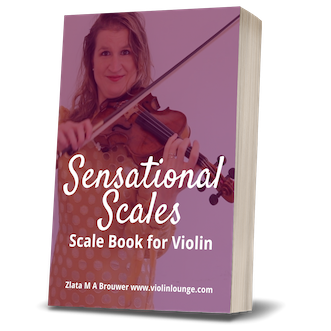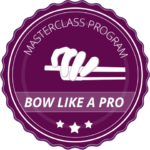Violin Bowing & Beautiful Tone Creation Secrets for Intermediate Violinists | Violin Lounge TV #266
In this video I share exercises and tips for intermediate violinists to improve their bowing technique and tone production on the violin
With better bowing you can pour artistry and expression in your playing without a lack of technique holding you back
1) Boring Bowing Exercise
Bow on open strings with the whole bow. Be your own teacher and listen carefully to your sound. Do you hear a regular sound without ‘extra stuff’ you don’t want to hear? Do you sound the same at the frog and tip? Are you belly bowing? In the video I give a couple of examples what you should ‘clean up’ in your bowing to create a full basic tone with core.
2) Save Bow
In the beginning teachers tell you to do everything with whole bow to train you to be comfortable with the whole bow. However, this can form a bad habit. Lots of violin players use too much bow, have a superficial sound and their bow speed tends to be too high. Make a sound with core and bow in the string. This requires some discipline in your right arm.
3) Smoothen your Bow Changes
Use your wrist and fingers to smoothen your bow changes, so your violin and bow can resonate optimally. Intermediate violinists don’t tend to have the cracks at bow changes like beginners have, but they do tend to stop the resonance in their instrument at every bow change. If you find it hard to move your wrist and fingers, start with making your bow hold more relaxed and see if your fingers can slowly start to move along with the bow motion.
FREE Violin Scale Book
Sensational Scales is a 85 page violin scale book that goes from simple beginner scales with finger charts all the way to all three octave scales and arpeggios

Hi! I'm Zlata
Classical violinist helping you overcome technical struggles and play with feeling by improving your bow technique.
4) Balance Weight and Speed
To create a full and deep tone on your violin, you should increase the weight of your arm you transfer through your index finger into to the bow and decrease the bow speed a bit. Doing this you’ll bow more ‘in the string’ and you’ll have a better sound. Always search for a good balance between weight and speed.
Realize the difference between weight and pressure. Pressure (pushing the bow into the string with muscle power) gives a loud, but ‘choked’ sound and mutes the resonance of the violin and bow. Weight from a relaxed and heavy arm creates a full and more resonant sound.



Excellent video, Zlata. Perhaps too many intermediate players are focussed on “quickly, quickly”, and striving for a better tone is not upper most in their minds while practising.
Thanks, Greame, you are absolutely right! Students tend to rush through pieces, while it’s the quality that really matters.